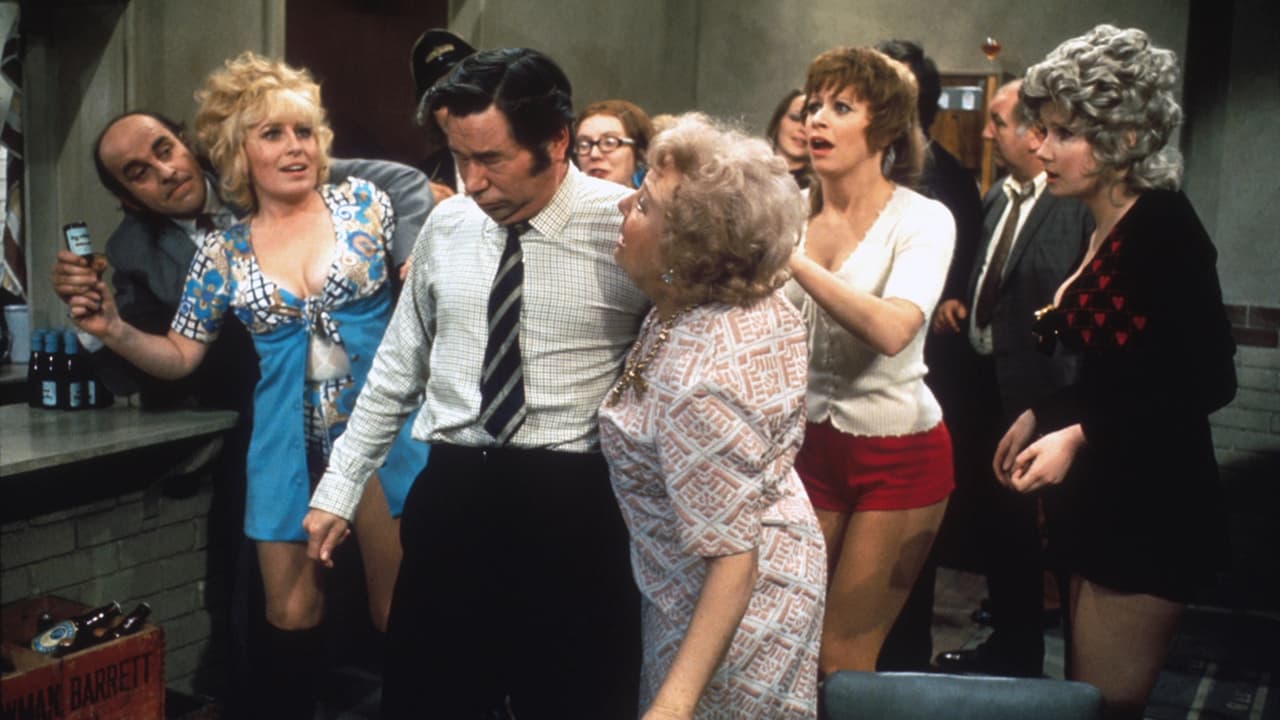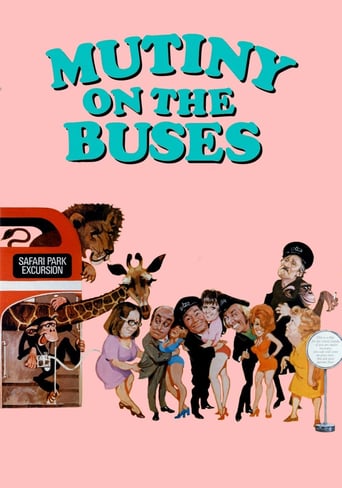




I wanted to like it more than I actually did... But much of the humor totally escaped me and I walked out only mildly impressed.
View MoreAt first rather annoying in its heavy emphasis on reenactments, this movie ultimately proves fascinating, simply because the complicated, highly dramatic tale it tells still almost defies belief.
View MoreI think this is a new genre that they're all sort of working their way through it and haven't got all the kinks worked out yet but it's a genre that works for me.
View MoreGreat example of an old-fashioned, pure-at-heart escapist event movie that doesn't pretend to be anything that it's not and has boat loads of fun being its own ludicrous self.
View MoreA less successful sequel to the first ON THE BUSES movie, although not without its moments. MUTINY ON THE BUSES offers up more of the same for fans of the comedy show, with various dated, sexist and sometimes amusing antics taking place on and around a bus depot.The gang's all here for this sequel outing, including enhanced roles for Stan's sister Oliver and her husband Arthur. Best of all is the presence of Stephen Lewis, shining once more as the chief antagonist Blakey. The jokes come thick and fast, many of them sexist and mildly offensive to modern audiences, but then that's part of the fun.Once again, the spirit is very much in the CARRY ON vein, and there are certain set-pieces to enjoy; the sojourn at the Windsor Safari Park is a definite highlight here. The film trilogy concluded with the final outing, HOLIDAY ON THE BUSES.
View MoreIn the 1970s, lots of movie spin-offs of popular British sitcoms were produced. Most of them turned out to be total disasters and were produced solely as lame attempts by ailing film companies, often working in a different genre (Hammer for example), to stop themselves from going under following the withdrawal of American financial investment. Having said that, ON THE BUSES was one of the few sitcoms that actually made a successful transfer to the big screen. Three movies were produced, more than any other sitcom managed to spawn.The movies are actually better than the TV series in some respects. For one, the daily goings-on at the bus depot receive a lot more focus. And they also use the medium of film to showcase some excellent outdoor scenes that were not possible in the series (due to both lack of budget and the fact that videotape equipment was much heavier to carry thus making location work very difficult without using very grainy film stock).The movies also capture the heart of the TV series, which is probably the biggest factor behind their amazing commercial success. All of the characters from the series are here and are played by the same actors. They behave the same as they would in any given episode, with Stan and Jack making fun of the inspector, Arthur insulting Olive and so on.This particular spin-off is probably the best of the three movies. the plot, such that it is, concerns the arrival of a new manager at the bus depot who is hellbent on making a profit for the company. So he introduces a number of efficiency drives including; the installation of radio control in the cabs, fire safety training, and extension of the bus services to include excursion tours. Naturally, everything that can go wrong does go wrong. As with the previous movie, there are many subplots:Stan gets engaged to a clippie, who wants them to get a place of their own before they get married;Arthur loses his job and Stan trains him to become a bus driver, which creates more problems than benefits for the family;And in one of the movie's most hilarious scenes, Olive gets into a catfight with one of the clippies at the depot who is known as "Nymphy Norah".It's all very dated and politically incorrect and could never be produced today due to fear of being branded with some undesirable label such as "sexist". But it is harmless fun and does never descend into vulgarity. There is very little, if any, swearing at all and sexual situations and gags are handled through innuendo.This movie has a much better score than the first one, with the theme consisting of a catchy accordion and saxophone tune. It stays with you long after the movie is over.All of the cast do a tremendous job in bringing the movie to life, but of course Stephen Lewis stands out the most as Inspector Blake (or Blakey as he's known).I wasn't alive in the 1970s so I am not able to say whether or not it truly reflects what Britain was like back then. But I can certainly say that the society expressed in this movie is far more pleasant than the one I live in today. The 1970s is portrayed as a simpler time when teenage pregnancies, family breakdown, and alcohol and drug-fuelled violence were problems that did not exist (at least not on the scale we have now anyway). In other words, it shows a society that wasn't broken, unlike the one that Britain has today.Overall, I would definitely recommend this if you're a fan of the TV series or have seen either of the other two movies. For those who haven't seen the series, I would recommend the movie if you are a fan of either the CARRY ON movies or Benny Hill-style humour.
View MoreThis wasn't funny in 1972. It's not funny now.Unlike a lot of other people, I'm not bashing the film because it is incredibly sexist - I quote enjoyed that bit, or rather I enjoyed the reaction it generates in annoying PC people - I'm bashing it because it is poorly written and acted.The only really memorable character is Blakey, which British people 25 years old will recognise immediately since he was a favourite with impressionists for a long time.Avoid.
View MoreOne of the better film comedies of the early seventies trend of making the transition from the small to the big screen. All three films easily surpassed the blandness of the TV series which is currently (Aug 2000) enjoying a re-run on Granada Plus in the UK.
View More